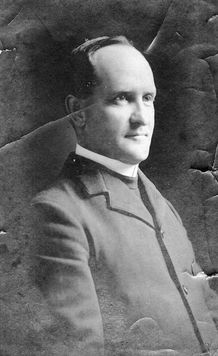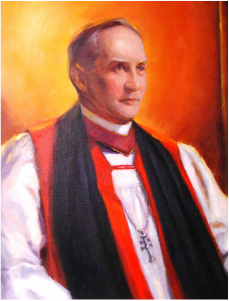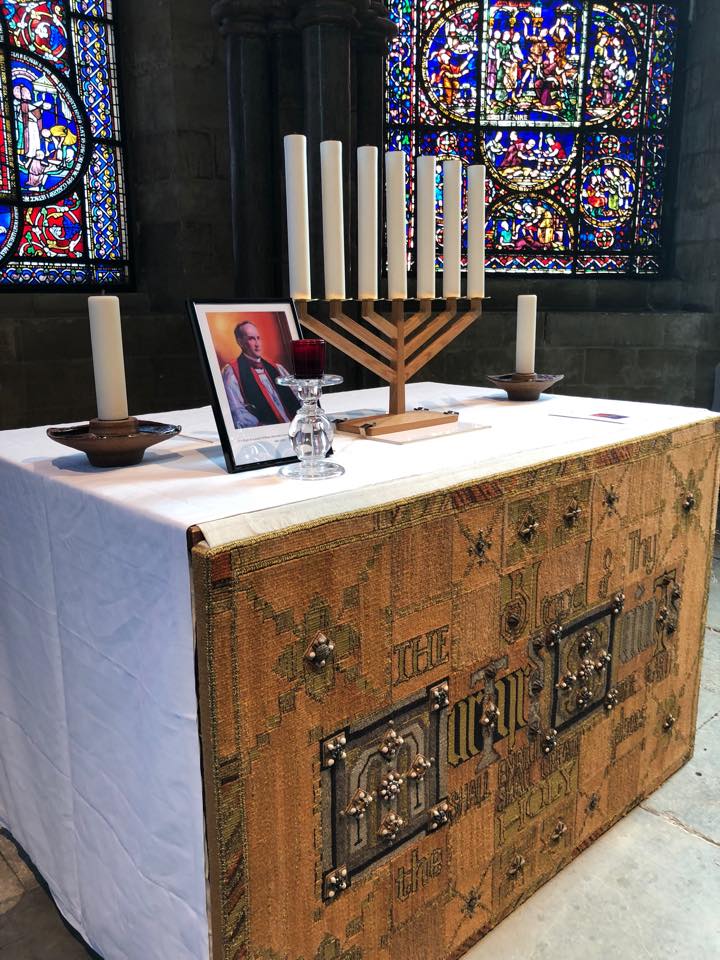|
June 25, 2023
Bishop Guerry Day in our diocese Propers for the Feast of William Alexander Guerry Isaiah 61:1-4 Psalm 116:1-8 Acts 7:54-60 Luke 12:2-8 Readings: Half page bulletin insert Bulletin inserts about Bishop Guerry Full page version Half page version Hymn: 'The Martyr's Song' |
William Alexander GuerryBishop, Reformer and Martyr
1861-1928 Collect for the Feast of William Alexander Guerry (June 9) God of truth and sacrifice, we give thanks for your servant William Alexander Guerry, who, like the church's first martyr, gave witness to your liberating gospel and echoed Christ's healing words of forgiveness. May we also seek your truth as we offer ourselves in obedience to the same. All this we pray through him who is forever the bishop and reformer of our souls, Jesus Christ our Savior. Amen. William Alexander Guerry, native of South Carolina, was born in 1861, served as the bishop of the Diocese of South Carolina from 1907 to the time of his death in 1928. He had an illustrious career as a parish priest and bishop and as Chaplain and Professor of Homiletics and Pastoral Theology at the University of the South. The value and discernment of truth became a hallmark of Bishop Guerry’s ministry. Bishop Guerry recognized that no one on earth has yet been given the whole truth but, by God’s grace, we all possess a part of it. It is within this framework of truth that he formed his vision of what a Christian community should be like. In 1909, the second year of his episcopate, Bishop Guerry, addressing a meeting of provincial church leaders in Birmingham Alabama, explained his belief about the breadth and depth of the Christian community, “We should strive for unity, not uniformity. Uniformity is mechanical, barren, unfruitful, and unprofitable. Unity is organic, living, and capable of endless growth. If we are to be truly catholic, as Christ himself is catholic, then we must have a church broad enough to embrace within its communion every living human soul.” Bishop Guerry’s theology of the broadness of the Church led him to propose, in 1914, the election of a black suffragan bishop for South Carolina to be responsible for the ministry to black Episcopalians, and to insure that all people, regardless of race, were part of the community of Christ in the diocese The alternative, which unfortunately prevailed, was to separate the African American community into a “Missionary District for Negroes”, an arrangement that continued until the after the mid-20th century when that segment of the Christian community was finally given an equal place in the community. The bishop’s life on earth ended on June 9, 1928, five days after he was shot in his office at St. Philip’s Church by a priest who had attacked the bishop’s position on advancing racial equality in South Carolina, and especially on his proposal to install a black suffragan bishop in the diocese. The priest who shot the bishop had written that the bishop, given his way, would root out the principle of white supremacy in the south. So, overtaken by hatred, and perhaps other mental problems, he fired the shot that killed the bishop and then turned the gun on himself, taking his own life. Before Bishop Guerry died in Roper Hospital, he said of his assailant, “Forgive him, Father, he knew not what he did.” Adapted from a history written by Thomas S. Tisdale, Jr. |
Copyright © 2024 The Diocese of South Carolina
P.O. Box 20485, Charleston, SC 29413 - 843.259.2016 - [email protected]
P.O. Box 20485, Charleston, SC 29413 - 843.259.2016 - [email protected]



